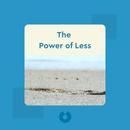Flow: The Psychology of Optimal Experience
Your highlights:
What’s in it for me? To discover meaning in your life, just go with the flow.
Why is it that some people enjoy a happy and creative existence while others seem to find themselves settling into a comfortable but frustrating rut?
8 June, 2020 05:35
Share
A seminal work in psychology, Flow argues that in our increasingly anxious, distracted lives, we can become too focused on external rewards and opinions (for example, by compulsively comparing ourselves with our peers). As a much-needed remedy, the book offers techniques that enable us to focus instead on intrinsic rewards, which can lead us to engage in our interests so totally that we enter a state of pure flow. In such a state, we simply don’t care about external rewards like power or wealth and we don’t even consider the opinions of others.
Grounded in years of empirical research, Flow also taps into ancient wisdom, philosophy and modern psychology to provide countless examples of people who discovered how to "get into the zone," and thus lead contented lives and do their best work.
For instance, you’ll discover that many scientists did some of their most revolutionary work in their spare time. You’ll find out why a surgeon or millionaire footballer might be deeply bored, while a factory worker waxes lyrical about all manner of subjects. You’ll also learn why going to jail can help you discover your goals and strengthen your resolve – as it did for Malcolm X. And, finally, you’ll see how being more mindful of your surroundings can also help you to get the most out of listening to music.
8 June, 2020 05:36
Share
If you are dissatisfied at work or bored and unhappy at home, these blinks will jolt you out of your rut and drive you to make the most of your limited time on this planet.
8 June, 2020 05:36
Share
We use religion and luxury to hide from an indifferent, meaningless world.
When we view our lives from a distance, they seem insignificant. And when we examine them closely, we notice that we’re unhappy and unfulfilled. To help us cope, most of us look for comfort in religion or we seek external rewards, like wealth or fame.
While this approach seems to make sense, it can also lead to us abandoning our critical faculties.
8 June, 2020 05:36
Share
Also, many empires and cultures led their citizens to believe they’d mastered their fates – for instance, the Romans at the height of their power and the Chinese before the Mongol invasion. Although this belief comforted people, it proved completely wrong as each of these civilizations collapsed.
And if we’re not hiding behind religion or political ideology to avoid the pointlessness of our lives, we’re struggling to acquire external rewards like power, wealth or fame. But these don’t satisfy us for very long either.
8 June, 2020 05:37
Share
Certainly we live in luxurious times and people from the past wouldn’t believe the conveniences that modern life provides. But having more money and acquiring more stuff doesn’t seem to make us happier. As one study showed, satisfaction with life doesn’t correlate strongly with being wealthy. You don’t need to look far to see evidence of this: just think about the number of rich patients that psychiatrists treat regularly.
So in order to give our lives meaning, we try to change the environment around us, whether by displaying our wealth to impress others or chasing powerful positions. Yet these all fail to sustain our happiness.
8 June, 2020 05:37
Share
Our genes impel us to seek basic pleasures, not the skills and challenges found in enjoyment.
While our attention can manage only a limited amount of information during our lifetime, from this dwindling resource most of us choose instant gratification as compensation for the daily grind of our lives.
This is because we favor simple pleasure over the more rewarding, yet more difficult to attain, enjoyment.
Pleasure provides simple restorative order – much like sleeping or eating: we have evolved so that when our blood sugar is low, we feel famished and are urged to eat something.
8 June, 2020 05:38
Share
Enjoyment, on the other hand, involves us stretching ourselves, using our skills and concentration to transcend the apparent limitations of our genes. In this way, enjoyment helps us to accomplish ambitious goals that we set for ourselves and enables us to gain control over our attention.
This can be seen, for example, when we prepare a meal we’ve never made before. The patience and the willingness to experiment that this task requires contributes to the development of a sophisticated palate, which enables us to savor every bite.
8 June, 2020 05:39
Share
Nevertheless, it’s pleasure, not enjoyment, that we seem to prefer, often in the form of pain-free escapism and hedonism. Yet these lack novelty and the opportunity for growth.
For example, after a hard day’s work, many of us sit watching TV, films or videos. This state of pure consumption is when we are at our most passive and easily distracted.
Furthermore, on the weekends, many of us unwind with alcohol or even other drugs. While these may promise relaxation or an expanded consciousness, the result is often that we damage our ability to concentrate and we lose control.
The formulaic storylines of TV programs and the artificial paradise of alcohol or drugs both require external stimulation, while neither allows us to exert skill or to focus fully on our goals.
8 June, 2020 05:40
Share
Our minds often don’t do what they can to achieve growth or complexity, but we shouldn’t take the path of least resistance and most distraction.
8 June, 2020 05:40
Share
The elements of enjoyment are available to everyone, but the goal is unique to each of us.
Across different languages and cultures, people use the same terms to describe what they feel when they are "in the zone."
This feeling is one of enjoyment rather than pleasure and it comes when you are engaged in a task or activity that balances skills and challenges, has clear goals and immediate feedback.
10 June, 2020 05:51
Share
Take surgeons, for example, who perform extremely skillful operations. They get immediate visual feedback on how well they are doing by the lack of blood in an incision, while the removal of a diseased organ can provide them with satisfaction due to the certainty that an operation has been a success.
But not everyone can have the same goals. Compare surgeons to practitioners of internal medicine. Like surgeons, they have clear goals; unlike surgeons they can’t get immediate feedback and so need to set other goals for enjoyment – perhaps successfully identifying an illness and administering the correct medicine.
10 June, 2020 05:51
Share
Being in the zone means that you’re totally immersed in the task at hand. This combines action and awareness, which gives you a feeling of control.
Take rock climbers, for example. Obviously they face extreme danger in their goals, but what they enjoy is using their expertise to quell their fears – for instance, by accurately estimating the difficulty of a climb. To do this, they have to devote their full attention to the task.
Such immersion and total concentration has also been observed in Melanesian sailors. Researchers found that these sailors, when blindfolded and taken hundreds of miles from their home island, were able to pinpoint their exact location just by focusing on the way water currents guided the boat.
10 June, 2020 05:52
Share
This immersion that we can see in the surgeon, the rock climber and the Melanesian sailor is so powerful it can release us from our self-consciousness, worries and anxieties and allow us to lose track of time. Indeed, the rock climber focuses so deeply on the intricacies of the rock face that he forgets his problems and surgeons report having the sensation that their operating team is a single organism.
10 June, 2020 05:52
Share
Developing new and interesting skills requires facing challenges that are tied to personal rewards.
One morning in Naples, a US tourist walked into an antique store and asked to buy a sculpture. The owner quoted a steep figure, yet when he saw the tourist was about to pay he claimed the sculpture wasn’t for sale.
Why?
He quoted the high price not because he wanted to exploit the tourist, but rather because he enjoyed bargaining and the battle of wits it involves, as it sharpened his mental dexterity and his selling skills.
Whenever we engage in something like this – something that’s neither too easy nor too difficult – we tend to expand our personal limits and achieve more.
10 June, 2020 05:54
Share
For example, if you’re a beginner at tennis, you’ll first simply enjoy trying to hit the ball over the net. As you improve, this easy challenge will start to bore you and you’ll start looking for ways to further challenge yourself – probably by playing against another person.
If you choose an opponent who’s far more skilled than you are, you’ll soon begin to feel out of your depth and anxious. Because the challenge is so difficult, you may even give up the chance to acquire new skills. But if you choose an opponent who’s just above your skill level, your skills may actually improve.
10 June, 2020 05:55
Share
Consider the ceramicist Eva Zeisel, who was imprisoned by Stalin’s police. Motivated by the personal need to maintain her sanity, she played chess against herself in her mind, memorized her own poetry and did gymnastics. She continued to improve her skills even in the worst conditions.
People like Zeisel, who had little else to keep them motivated, devised games for themselves to keep themselves sane, improve their skills and powers of imagination and control their consciousness.
10 June, 2020 05:56
Share
Improvement also requires, however, that these skills be aligned with personal goals and passions and remain unaffected by external circumstances such as the promise of a reward if you do well, or the threat of punishment if you don’t.
10 June, 2020 05:56
Share
With discipline, we can use our senses and movements to help us tune into a heightened state of awareness.
For most of us, the idea of paying attention to our walking is an unusual one. Walking simply gets us from A to B.
But by paying attention to the variety of sights around you – the people, their interactions, historical relics, architecture and so on – even the most routine actions, such as walking, can be transformed.By practicing mindfulness of our surroundings, we can learn to perceive much more than our automatic response to the world allows.
11 June, 2020 05:45
Share
Yet we rarely get lost in its full complexity. If we can learn to be mindful of the music we listen to, this can unlock other levels: the sensory, feeling the body responding to rhythm and bass; the analogic, when you see corresponding images in your mind’s eye (perhaps Tchaikovsky driving you on a sleigh through a snow-covered forest); and the analytic, in which you analyze the structure of a piece and compare it to other versions and composers and so on.
But to become mindful, we need to strengthen our self-control – which can be achieved by tapping into ancient Eastern wisdom.
For centuries, yoga has been practiced as a method to free the self from the ego. Yet it can be used also to steer our attention in positive directions that are aligned with specific goals. The steps that yoga prescribes to focus our attention are the practices of nonviolence, obedience, cleanliness, disciplined study and the acknowledgment of a higher power.
11 June, 2020 05:45
Share
It is indeed possible to have unprecedented control over your mind using nothing more than the body you inhabit.
11 June, 2020 05:45
Share
Our memories and thoughts can be cultivated to focus on complex ideas rather than the flaws of the self.
Many of us who play sports and exercise gain enjoyment from the focused attention these activities require. But it's not only through sports that we can achieve this: we can also use our minds to play games and get into the "flow state" which produces enjoyment.
Such a mental flow state can result from engaging in language and memory games and exercises. For instance, crosswords kill time on trains, but this pursuit is dependent on an external stimulus. Instead, try creating your own crossword puzzles. Not only can this lead to flow, but it also improves your wordplay skills, making conversations more fun by transcending the usual small talk and mundane exchanges.
11 June, 2020 05:46
Share
You can engage your memory, too. Find a subject that interests you and absorb everything about it, such as lines of poetry you like, or the events of World War II. By doing this, you enable yourself to rely on your own memory to stimulate your mind and to feel a connection with the subject.
Furthermore, a flow state can be accomplished by focusing on external things, rather than on one’s flaws. You could try doing what Bertrand Russell did to make himself happy: forget about your own flaws and focus instead on the external world, by immersing yourself in many fields of knowledge, or focusing on people you admire.
11 June, 2020 05:47
Share
Indeed, even the complex worlds of science and philosophy can be enjoyed by both amateurs and academics, as they encourage contemplation and the use of logic.
Many scientists, in fact, achieved success because they simply enjoyed the act of improving their scientific skills. For example, Isaac Newton spent two lonely years living in a farmhouse and it was there that he formed his theory of gravity. And Gregor Mendel was a clergyman whose gardening hobby led to the birth of genetics. And let’s not forget Einstein who worked by day in a Swiss patent office, formulating his theories in his free time.
11 June, 2020 05:47
Share
Work that you treat like a game, with intrinsic rewards and varied skills, ceases to be "work."
Many people are dissatisfied with their daily routines and often their jobs are to blame. What makes matters worse is that their leisure time is spent recovering from their work in the laziest way.
However, work can be developed into something that provides a challenge, focuses our attention and reduces our anxieties.
Consider the elderly residents of a hamlet in the Italian Alps, who didn’t see a distinction between their daily work and their free time. Every day they had to get up at 5 a.m. to milk cows, carry bales of hay for miles, tend the orchard or cook for their families. But when asked what they’d change about their lives if they were wealthy, they responded that they wouldn’t change a thing.
13 June, 2020 08:08
Share
One way of getting into a flow state is to set yourself intrinsic rewards (that is, ones not motivated by cash incentives or extrinsic power), such as trying to surpass your usual performance level or learning as much as possible about the job.
Take, for example, the railroad car welder who was very popular with his colleagues. His popularity was due to the fact that he’d learned every essential task in his company’s assembly line and he enjoyed performing all of them. He also refused promotions because he preferred to perform a variety of manual tasks and enjoyed turning each of them into a challenge. When the day was done, he didn’t feel the need to escape but instead spent his free time cultivating his garden.
So, to get into a state of flow you should seek out new challenges in work, aiming to learn as much as possible about all of the essential tasks involved in keeping your company running, rather than just clocking in and clocking out.
13 June, 2020 08:10
Share
Engaging with family, friends and community is vital for our happiness, self-expression and growth.
Busy trains and open-plan offices can impinge on our freedom and individuality. Time spent alone allows us to give our undivided attention to something, but it can also lead to boredom. That’s when we need the support of the people we know and trust.
In short, good family, friends and neighbors.
13 June, 2020 08:11
Share
Good families provide honest feedback, unconditional acceptance and long-term goals.
Families that are conducive to enjoyable experiences are both differentiated, accepting each family member’s distinct skills and traits for what they are, and integrated – being honest, fair to everyone and neglecting no one.
For example, parents who take part in challenging, skillful tasks like carpentry or cooking rather than TV-watching or drinking are more likely to see their children try to emulate these positive traits.
13 June, 2020 08:12
Share
We also require good friendships, as these are essential for strengthening our expressive side. The skills we have are either instrumental, like survival and professional skills,or expressive, communicating our personalities clearly. Compared with being alone, spending time with friends nurtures our expressive side: it produces much higher levels of happiness, self-esteem, strength and motivation – not to mention providing an audience.
13 June, 2020 08:12
Share
Finally, we need neighbors and communities to provide us with the opportunity for novelty and growth. If we blank our neighbors or avoid contact with our community, we’ll miss out on their help in the future and confine ourselves to our old habits.
Consider, for example, Indian tribes in Canada, who often find areas of rich food resources and establish permanent villages. However, every generation they up sticks and move to a different area where they start again from scratch, which means they have to learn new ways of finding and harvesting food. They do this to jolt themselves out of their routine lives and to regain new skills, health and vigor.
13 June, 2020 08:13
Share
About the book:
Flow (1990) explores how we can experience enjoyment in our lives by controlling our attention and strengthening our resolve. This is achieved by being immersed in an activity or subject that makes us neither anxious (if it’s too hard), nor bored (if it’s too easy). In this "flow state" we lose our self-consciousness, selfishness and sense of time. Using goal-setting and immediate feedback, we can achieve a state of flow that improves our relationship with work, increases our self-worth and gives our lives meaning.
About the author:
Mihaly Csikszentmihalyi is a professor of psychology with a PhD from the University of Chicago. He has been described as the global leader in research on positive psychology, creativity and motivation. His other books based on this research include Creativity: The Psychology of Discovery and Invention and Finding Flow: The Psychology of Engagement with Everyday Life.









